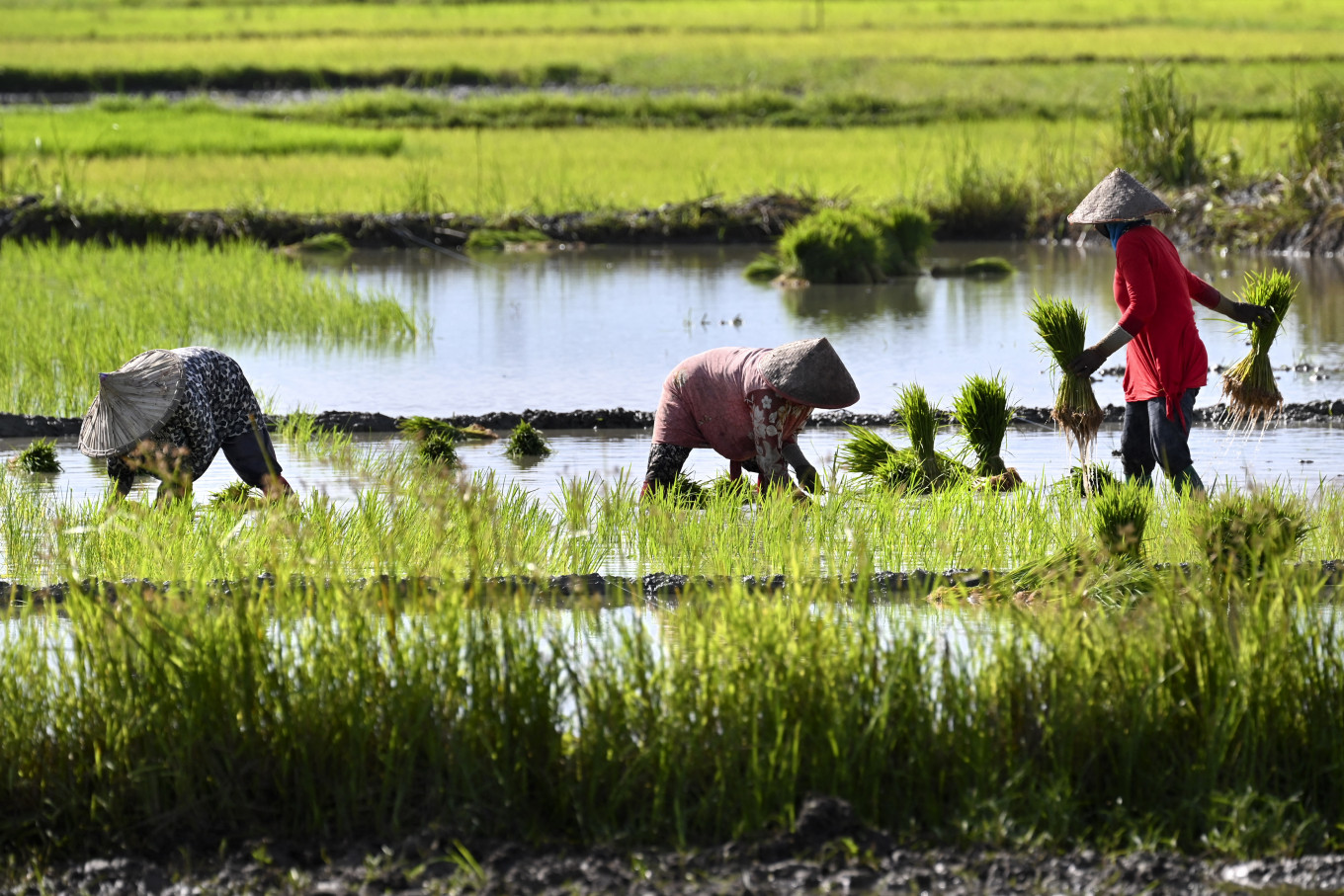Popular Reads
Top Results
Can't find what you're looking for?
View all search resultsPopular Reads
Top Results
Can't find what you're looking for?
View all search resultsTransforming food systems: A global moment for local impact
Food systems transformation is not just about agriculture, it is about climate, health and economic opportunity.
Change text size
Gift Premium Articles
to Anyone
P
resident Prabowo Subianto has placed food security at the heart of his vision for Indonesia’s future. His administration is committed to ensuring that every Indonesian has access to affordable, nutritious food while supporting the livelihoods of the nation’s 37 million smallholder farmers. This vision is not only a national imperative, it is a global one.
This shared responsibility will take centre stage later this month, when the world will gather in Addis Ababa for the UN Food Systems Summit +4 Stocktake (UNFSS+4). Co-hosted by the governments of Ethiopia and Italy and convened by the UN Secretary-General, the summit could bring together at least 18 heads of state, together with ministers, private sector leaders and civil society representatives.
The Indonesian delegation, led by the National Development Planning Ministry (Bappenas), will join global partners to accelerate action on food systems transformation.
Ethiopia’s agricultural revolution is a model for Africa and the world. By leveraging technology, investing in infrastructure and prioritizing nutrition, Ethiopia is not only feeding its people but also contributing to global food security.
The UNFSS+4 in Addis Ababa will be a celebration of these achievements and an opportunity to both learn from them first hand and to share other success stories from around the world. By co-hosting the summit, Italy, which proudly hosts the UN food agencies (FAO, WFP, IFAD) and launched during its last G7 Presidency the Apulia Food System Initiative (AFSI), aims at reaffirming its commitment for food security shared with the UN and with many other countries.
The stakes are high. Food systems transformation is not just about agriculture, it is about climate, health and economic opportunity. By rethinking how we produce, distribute and consume food, we can reduce greenhouse gas emissions, curb unsustainable resource use, improve nutrition, cut food waste and enhance rural livelihoods.
These goals are not abstract, they translate into tangible benefits: higher productivity, lower costs and better incomes for farmers.
Indonesia is already taking proactive steps to reshape its food system. In partnership with the UN, the government is preparing to launch a strategic initiative focused on rice, the country’s most important staple crop and the leading source of agricultural emissions.
This initiative will promote climate-smart agricultural practices, biofortification of rice seeds to improve nutrition, and the expansion of the national rice farmer insurance mechanism. It will also explore innovative micro-lending through private investment to scale up impact. In this sector, Italy and Indonesia are also cooperating under the Milan Urban Food Policy Pact (MUFPP), which offered feasibility studies to community kitchens for school pupils in three major Indonesian cities (Bandung, Denpasar and Semarang).
The UNFSS+4 Stocktake will provide a critical platform for countries to present such initiatives to global investors. More than just a meeting, the summit will serve as a marketplace for ideas, partnerships and financing. A number of countries will be making strategic pitches to potential financiers. Indonesia will be among them, seeking to attract significant investment that can accelerate the implementation of transformative programs.
This moment underscores a broader fact: development today is everyone’s business.
Governments alone cannot achieve the Sustainable Development Goals; the private sector, civil society and international organizations must work together to drive innovation and investment. The multilateral system is evolving to support this collaboration, bringing together public and private actors to scale up solutions that work.
As Indonesia looks to the future, it does so with a clear understanding: food security is key to national security. By transforming food systems, we can build a more resilient, inclusive and sustainable Indonesia, one that nourishes its people, protects its environment and empowers its farmers.
The Addis Ababa summit is not just a checkpoint, it is a launchpad for the partnerships that can drive the next phase of global food systems transformation. The world is watching, and Indonesia is ready to rise to the challenge.
---
Leonardo A.A. Teguh Sambodo is deputy for food, natural resources and environment at the National Development Planning Ministry/Bappenas. Fekadu Beyene Aleka is Ethiopian Ambassador to Indonesia. Roberto Colaminè is Italian Ambassador to Indonesia. Gita Sabharwal is UN Resident Coordinator in Indonesia.











